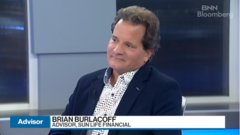Dec 7, 2018
David Driscoll's Top Picks: Dec. 7, 2018
David Driscoll, president and CEO of Liberty International Investment Management Inc.
Focus: Global equities
MARKET OUTLOOK
Given the sharp drop in equity markets since Oct. 1, it’s certainly a wonderful thing to be holding 20 per cent cash multiplied by the equity weight in clients’ portfolios. Despite not being fully invested, client equity holdings are up this year while the market is down. The difference is what’s known as “alpha.” If an investor is up five per cent and the market is down five per cent, then the alpha is 10 per cent. That’s the way to evaluate a portfolio manager. If their alpha is consistently greater than two per cent or more each year after fees, you’ve got a good portfolio manager.
The reasons behind our positive alpha are:
- The stocks in our portfolios are companies that generate consistently rising free cash flows. They have the financial flexibility to deal with whatever the macroeconomic environment (slower growth) or politicians (tariffs, trade wars) throw at them. As a result, we have no need to trade these stocks and then incur transaction costs and capital gains tax. Instead, the clients can keep the nickels and dimes for themselves while never missing out on a dividend payment. Remember: two thirds of all performance comes from rising dividends and the re-investment of those dividends, not stock price movement.
- We have a fully diversified, global portfolio (both stocks and bonds) with no correlation risk. Each of the 30 stocks in the portfolio is out there in the world doing its own thing and not competing directly with other stocks. We own one Canadian bank (TD), not all six of them. Since the Canadian banks’ price performances have all been negative in 2018, we’re not suffering from their underperformance.
- We currently hold 20 per cent cash times the equity weight in the portfolio. For example, if the asset mix is 60 per cent stocks and 40 per cent fixed income, the cash holding is 20 per cent times 60 per cent, which equals 12 per cent cash. If it’s an all-equity portfolio, the cash weight is 20 per cent. Cash is known as a “synthetic short,” meaning if you’re 80 per cent in stocks and 20 per cent in cash, your equity exposure is only 60 per cent (80 per cent minus 20 per cent) and you won’t go down with the market unlike investors in index funds or ETFs, who are suffering the full brunt of this current equity sell-off.
- Our portfolios all have a weighted average portfolio beta of less than one. This means less volatility relative to the market. If an investor had a portfolio of only semiconductor stocks whose betas are around 1.50, their performance would be 50 per cent worse than the market indexes. For example, if the market was down 10 per cent, they’d be down 15 per cent.
- The dividend growth among the Liberty global stocks has averaged 15 per cent in 2018: about double the historical average of all publicly-listed stocks worldwide. This helps the portfolios to provide both income and growth. The faster the income grows, the greater the downside protection it provides. This is because that dividend income is guaranteed and provides cash for future purchases in a down market at cheaper prices.
- Our bond portfolios are laddered. Think of each rung of a ladder as a year in which a bond matures. If a bond matures each year from 2019 to 2029 and interest rates rise, there’ll always be a bond maturing that can be rolled over into a higher coupon instrument. This is known as bond immunization. Think of it as an annual flu shot against rising rates.
- If you own fixed income it’s important to own some inflation-protected bonds. For our clients, we have five per cent of the portfolio allocated to these types of bonds. They’re the only instruments that protect you from inflation on the fixed income side of your portfolio. If you own the Canadian three per cent real return bond (RRB) due in 2036, the coupon is three per cent plus the inflation rate (currently 2.4 per cent in Canada), for a total payout of 5.4 per cent for 2018. Given the current inflation rate, investors in short-term bonds or GICs are earning a “real return” (after tax and inflation) that is negative; that means their spending power is declining, not rising.
- Being invested in international securities (stocks and bonds) gives you protection against a drop in the Canadian dollar (currently down about five per cent this year against the U.S. dollar). While some may say they don’t want to be invested in European markets or emerging markets, it’s an imprudent comment. Year-to-date, our European stocks are up three per cent while the comparable benchmark is down 11 per cent and our investment in Jardine Matheson, a company with subsidiaries in Southeast Asia, is up 10 per cent against the Asia-Pacific indexes, which are down anywhere from four per cent (Japan) to 21 per cent (China).
If you own a fully diversified global portfolio, then you have nothing to worry about regardless of what’s happening in the stock markets today.
TOP PICKS
HALMA PLC (HLMA.LON)
Halma is a health and safety sensor technology group which makes products that detect hazards and protects assets at work in public and commercial buildings. Product demand is steady and, while not recession-proof, it can hold its own in difficult markets. Only 25 per cent of their sales are in the U.K. and European markets, so any drop in the British pound is beneficial to higher sales and earnings.
FIRST CASH FINANCIAL SERVICES (FCFS.O)
First Cash Financial Services owns and operates pawn stores in the U.S., Mexico and other South American countries. When economies fall into recession, pawn shop activity picks up. If the U.S. dollar falls and the price of gold rises, First Cash Capital also benefits as they deal a lot with pawned gold jewelry. Since its first payment in 2015, the company has been raising its dividend by about 18 per cent annually.
METRO INC (MRU.TO)
Metro is a Canadian food retailer in Quebec and Ontario that has recently purchased the assets of Jean Coutu, a pharmacy retailer. This is an inelastic consumer company that performs in both strong and weak economies. It currently trades at 14.5 times 2020 earnings as profits and dividends are expected to grow by 10 per year.
| DISCLOSURE | PERSONAL | FAMILY | PORTFOLIO/FUND |
|---|---|---|---|
| HLMA | Y | Y | Y |
| FCFS | Y | Y | Y |
| MRU | Y | Y | Y |
PAST PICKS: NOV. 1, 2017
LITTELFUSE (LFUS.O)
- Then: $188.44
- Now: $72.58
- Return: -8%
- Total return: -8%
INTERTEK GROUP (ITRK.LON)
- Then: £5, 325.00
- Now: £4,592.00
- Return: -14%
- Total return: -12%
ROLLINS, INC (ROL.N)
- Then: $43.70
- Now: $57.25
- Return: 31%
- Total return: 33%
Total return average: 8%
| DISCLOSURE | PERSONAL | FAMILY | PORTFOLIO/FUND |
|---|---|---|---|
| LFUS | Y | Y | Y |
| ITRK | Y | Y | Y |
| ROL | Y | Y | Y |
WEBSITE: http://www.libertyiim.com/











